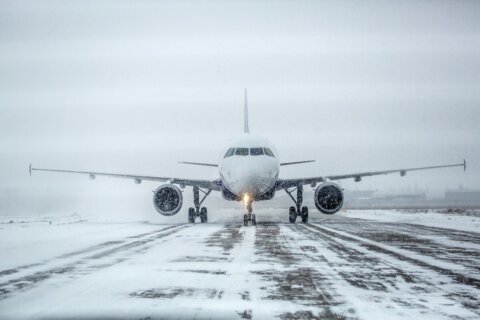Airlines are working feverishly to get millions of passengers back home from the holidays this weekend. It comes after a spike in COVID-19 cases and winter weather delayed thousands of flights last week.
“We had things shutting down left and right and that’s going to stay with us for the next three days,” said CBS News Travel Editor Peter Greenberg.
He said airports saw a perfect storm of problems, which included already understaffed airlines reeling from COVID-positive employees calling out sick.
Add in winter weather that grounded thousands of flights, and passengers experienced a travel nightmare with massive cancellations and delays.
“The real problems were not the cancellations, [it] was the delays,” Greenberg said. “For so many passengers who connected at intermediate airports, that was their challenge. A lot of people got stuck.”
Airline passengers could see a repeat on their return trips, with Sunday becoming the busiest travel day, he said.
“What you’re going to see are the airlines trying to do preemptive cancellations to maintain their flight schedules,” Greenberg said. “During Christmas holidays, people stagger their departures.
But, we’re creatures of habit and we all tend to want to come back on the same day. That will be this Sunday.”
TSA said it screened more than two million passengers a day last week. The figure is close to 2019’s holiday travel levels.
Greenberg said, over the summer, airlines over-scheduled new routes when many people wanted to see a return to travel.
But, when the omicron variant struck, airlines couldn’t keep up with the schedules, he said.
“It just became unsupportable,” said Greenberg. “What you’re seeing now are airlines trying to pare down their schedules. And pulling flights off the schedule permanently.”
Greenberg said passengers can avoid travel headaches by paying a little more for a ticket that has a longer time between fully booked connecting flights.
At least, 90 minutes or more, he said.
“Even if there are no delays, getting from one terminal to another is not only a challenge for you, it’s a challenge for your bags,” he said. “As a general rule, I give myself a 90-minute connect time, even in the best of times.”







